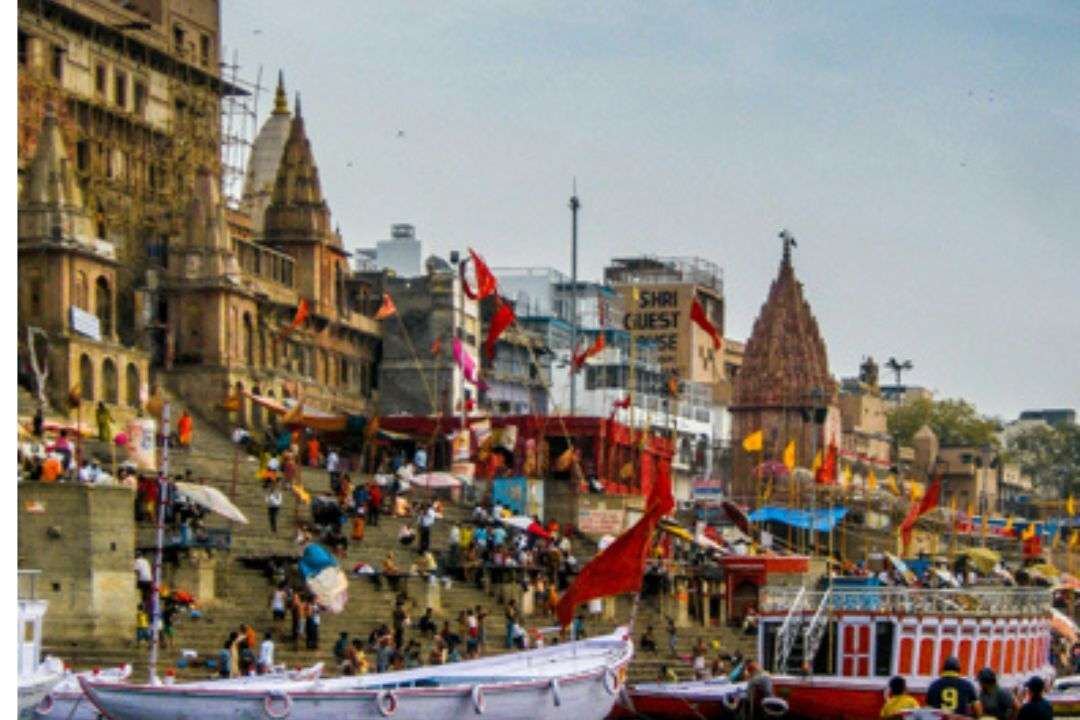The Toyota Mobility Foundation has named five finalists in its $3 million Sustainable Cities Challenge, an initiative focused on improving crowd movement and public space management in Varanasi’s densely visited old city area. Organized in collaboration with the Varanasi Municipal Corporation, Challenge Works, and the World Resources Institute India (WRII), the challenge seeks practical solutions to manage foot traffic and reduce congestion in Kashi, a city known for its religious significance and high visitor volumes.
The challenge began with entries from across the globe, from which ten semi-finalists were invited to refine and present their concepts. After a six-month development phase, five teams have now been selected to move forward.
The evaluation process was based on several criteria: practical applicability, potential impact, data use, community relevance, and long-term scalability. Proposals needed to address the city’s narrow streets, large pedestrian volumes, safety concerns, and the movement needs of both residents and visitors—while maintaining sensitivity to the city’s cultural context.
Each of the five selected teams will receive $130,000 to begin real-world testing of their proposals in Varanasi. The finalists represent a diverse mix of expertise, each bringing a unique approach to improving pedestrian safety, mobility, and crowd management. Arcadis, a global engineering and consultancy firm, has proposed SANKALP, an integrated system that leverages real-time data, mobile applications, simulation models, and communication platforms. The solution is designed to enable proactive crowd management, shifting the focus from reacting to incidents to anticipating and preventing them.
CITYDATA, Inc, a specialist in data and mobility analytics, has developed CityFlow, a cloud-based platform that monitors and analyzes pedestrian movement using AI. The system works with existing video infrastructure, eliminating the need for new hardware installation. By providing accurate, real-time insights, it helps authorities understand patterns and make informed decisions to improve safety and flow.
VOGIC AI is advancing Behtar-Way, a Vision AI-powered navigation tool focused on pedestrian needs. It offers users safer, alternative walking routes while simultaneously supplying authorities with live crowd density updates. This dual functionality aims to improve both individual safety and large-scale crowd management.
From the urban planning sector, Prameya Consulting Pvt Ltd has introduced Nayichaal, a hybrid solution combining physical and digital tools. It features a chatbot, navigation application, clear signage, and a comprehensive mobility dashboard. Together, these components are designed to enhance safety, accessibility, and inclusivity for people moving through busy urban areas.
The Urbanizer, an India-based urban design and architecture studio, has presented Jan Jatra, a plan grounded in local knowledge and community input. The proposal combines visual markers, small-scale urban interventions, and intuitive wayfinding strategies to make navigation easier and more user-friendly in crowded city spaces.
Akshat Verma, IAS, Municipal Commissioner and CEO of the Varanasi Smart City project, said, “These five teams are bringing forward ideas that respect the character of Kashi while offering modern tools to improve daily movement for residents and visitors. We hope their work will serve as a reference for other cities balancing heritage and growth.”
Pras Ganesh, Executive Program Director at Toyota Mobility Foundation, noted, “Each finalist proposed solutions grounded in real urban needs. Their ideas have the potential to serve not only Varanasi but also other high-density heritage cities.” Avinash Dubedi, Head of Sustainable Cities and Transport at WRII, added, “What we’re seeing here goes beyond traffic control. These ideas reflect deeper thinking about access, safety, and dignity in public space.”
Kathy Nothstine, Director at Challenge Works, said, “The finalists bring together technical skill and local sensitivity. Their approaches may help redefine how crowded urban areas, especially those with historic importance, manage movement and public space.”
The Sustainable Cities Challenge is funded by the Toyota Mobility Foundation and managed in partnership with Challenge Works and the World Resources Institute. Its goal is to support cities as they develop smarter, more efficient urban mobility systems, particularly in areas facing high footfall and infrastructure strain.
In India, Toyota Kirloskar Motor is supporting implementation efforts and providing operational coordination. Vikram Gulati, Executive Vice President at Toyota Kirloskar Motor, said, “The solutions selected for Varanasi reflect new possibilities in urban design and crowd management. They show what can be achieved when local context and innovation come together.” As the finalists prepare for the pilot phase, each solution will be tested for feasibility, user experience, and long-term adaptability, with outcomes expected to inform future strategies in Varanasi and other global heritage cities.







